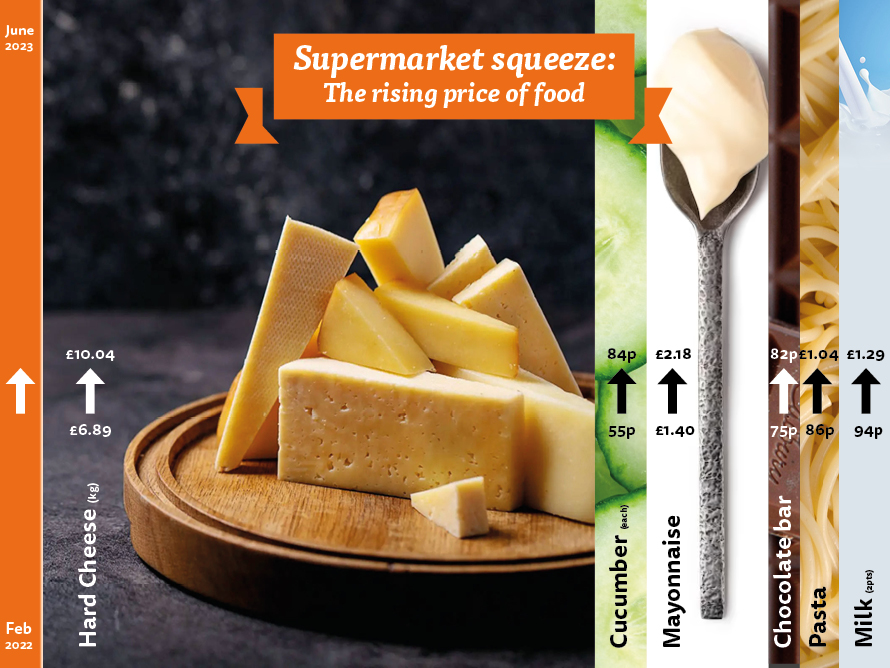Will the cost of living crisis ever end? Crisis strikes again in the UK economy as a drastic hike in interest rates underlines the spectre of persistent inflation. Some say there is no end in sight.
Recession ‘inevitable’ after inflation shock
 Coin-cidence? Inflation stayed at 8.7% in April and May, down from a peak of 11.1% last year.
Coin-cidence? Inflation stayed at 8.7% in April and May, down from a peak of 11.1% last year. Glossary
Inflation - An increase in the price of goods in an economy.
Bank of England - The central bank of the UK. Like other central banks around the world, it tries to stabilise the economy by keeping down inflation and offering loans to struggling banks.
Interest rates - The interest rate tells you how high the cost of borrowing is, or how high the reward for saving is. If it is more expensive for businesses and consumers to borrow, they will spend less and inflation will fall.
Recession - A period of economic decline. A recession occurs when a country’s Gross Domestic Product falls for six months in a row.
Conservative party - A British political party. Members are known as Tories.
Chancellor of the Exchequer - The chancellor of the Exchequer, often just called the chancellor, is the UK government's chief finance minister. They are in charge of taxation and government spending and borrowing.
